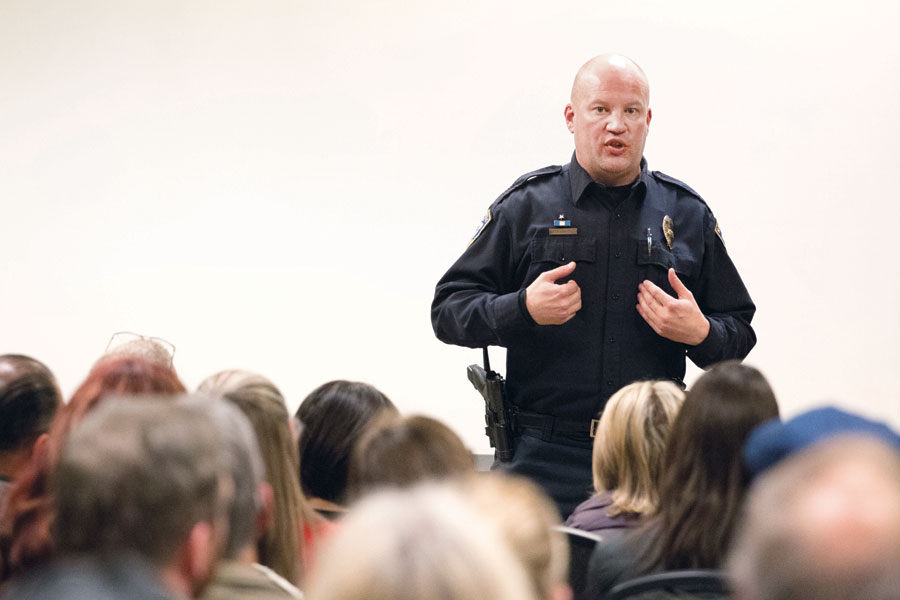In the last two years, there have been 13 known opioid overdoses in Whitefish. The rate is even higher in Kalispell, where a 21-year-old woman died from an overdose just days before a town hall meeting focused on a problem that law enforcement has called a “crisis.”
On Feb. 16, more than 200 people attended a town hall meeting hosted by the Kalispell Police Department and the STOP Prescription Drug Abuse in the Flathead Coalition. The meeting featured a panel of local and federal law enforcement officials and a 45-minute film produced by the Federal Bureau of Investigation and Drug Enforcement Administration titled “Chasing The Dragon: The Life of an Opioid Addict.”
Michael Kulstad, a public affairs officer for the FBI in Washington D.C., said the film was released in early 2016 and has since been shown across the country.
“We created this film because we believe we cannot arrest our way out of this problem or treat our way out of this problem. We have to educate people, because more people die from opioid overdoses than car accidents now,” he said. “That’s a crisis … and it’s not just a Kalispell problem, it’s an everywhere problem.”
According to the film, 46,000 people die annually from drug overdoes, half of which is the result of prescription pill or heroin use. In 2014, one in five high school seniors said they had misused a prescription drug. That same year, more than 1.4 million people abused a prescription drug for the very first time. More than 10 million people aged 12 and older have reported misusing a prescription at some point in their life.
The town hall meeting comes as Northwest Montana struggles with a growing drug problem. While methamphetamine has grabbed the most headlines in recent months, law enforcement say they are also concerned about pills. Cory Clarke, KPD’s Flathead High School resource officer, says he usually finds marijuana on students, but he’s also discovering meth and pills. But tracking down the pills can be tough. While the school occasionally brings in drug dogs, they aren’t trained to sniff out prescriptions.
Officials urged attendees to talk to friends and family about drug abuse, and if they know someone who they think is using, get them help. Law enforcement also encouraged parents to be on the lookout for warning signs that their children are abusing drugs and to keep a close eye on prescriptions.
Bill Murphy, a DEA agent who worked in the Midwest until being reassigned to Montana, said that while the local drug problem seems bad, it’s worse elsewhere. Community awareness can help combat it.
“There are places back east that are losing a whole generation of high school students to these drugs,” Murphy said. “We’re getting a body a day out there, and it could come here pretty quick.”
